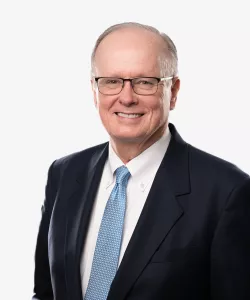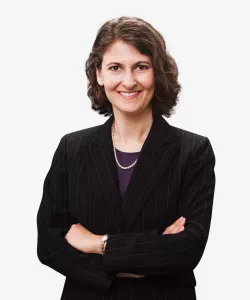California Appellate Court Upholds Hospital Board’s Exercise of 'Independent Judgment' in Overturning Hearing Committee Decision
In an important published opinion, the California Court of Appeal in Michalski v. Scripps Mercy Hospital has confirmed that a hospital’s governing body may, where permitted by the hospital’s bylaws, exercise its independent judgment and overturn the decision of a medical staff hearing committee. Although prior Court of Appeal decisions fully supported this conclusion, Michalski is the first published opinion in which the medical staff bylaws expressly called for the hospital board to apply an “independent judgment” standard when hearing appeals of medical staff peer review decisions. The Michalski decision removes any doubt that such a standard is appropriate and permissible under California law and confirms that hospital boards may use their independent judgment to ensure quality care and patient safety. Michalski v. Scripps Mercy Hospital, et al. (Nov. 27, 2013, D062270) ___ Cal. App. 4th ___.
Background
This case arose from the denial of Dr. Michalski’s applications for medical staff privileges at three Scripps Health hospitals. The Medical Executive Committees (MECs) of all three hospitals had recommended denial of Dr. Michalski’s applications after discovering his history of sexual harassment and misconduct while on the medical staff at Sharp Grossmont Hospital (Sharp). Dr. Michalski challenged these recommendations in a consolidated peer review hearing before a Judicial Review Committee (JRC) of Scripps physicians. Despite finding that Dr. Michalski’s behavior at Sharp had been “aggressive, predatory, and reprehensible,” the JRC sided with Dr. Michalski and rejected the MECs’ recommendations to deny the applications.
The MECs appealed the JRC decision to the Scripps Board. After a hearing and the submission of written briefs, the Board reversed the JRC. The Board indicated that it was exercising its independent judgment and confirming the MECs’ recommendations to deny Dr. Michalski’s applications.Dr. Michalski then filed a petition for writ of administrative mandamus in California Superior Court. The trial court denied the petition and Dr. Michalski appealed. Arent Fox attorneys Lowell Brown and Sarah Benator represented Scripps in the appeal.
The Court of Appeal’s Decision
After reviewing the procedural history of the case and the evidence of Dr. Michalski’s misconduct (largely drawn from the California Medical Board’s formal reprimand of Dr. Michalski), the Court of Appeal turned to the question at hand: Whether the Scripps Health Board was authorized to exercise its independent judgment and overturn the JRC’s decision. The Court noted that the Legislature has charged hospital boards – not medical staffs or even the courts – with the ultimate responsibility “to insure the competence of its medical staff.” As such, the Court held that “[w]here permitted by a hospital’s bylaws, its governing body may, using its independent judgment, completely overturn the decision of a medical staff-selected hearing committee.” In reaching this conclusion, the Court rejected Dr. Michalski’s arguments that a governing body must be bound by a more deferential and restrictive standard when reviewing a JRC’s decision.
The Michalski decision is good news for hospital medical staffs; it enhances a medical staff’s ability to ask the hospital governing body to protect patients by insisting that the members of their medical staffs meet both competence and behavioral standards. By specifying the “independent judgment” standard in its bylaws, a hospital can protect against peer review hearing panels that might act more out of sympathy for an accused physician than out of concern for patient care. Although the governing body must still give great weight to a hearing panel’s factual findings, it can exercise its independent judgment to correct an erroneous decision and ensure that patient care and safety remain the ultimate and primary goal of peer review proceedings. In short, while physicians are still guaranteed a fair procedure, patient welfare will remain paramount.
Dr. Michalski has 40 days to seek review by the California Supreme Court; otherwise the decision will become final.
If you would like further information about the Michalski opinion and its impact on medical staff law, please contact Lowell Brown or Sarah Benator, in our Los Angeles office; or the Arent Fox attorney who normally handles your legal affairs.
Contacts
- Related Industries

